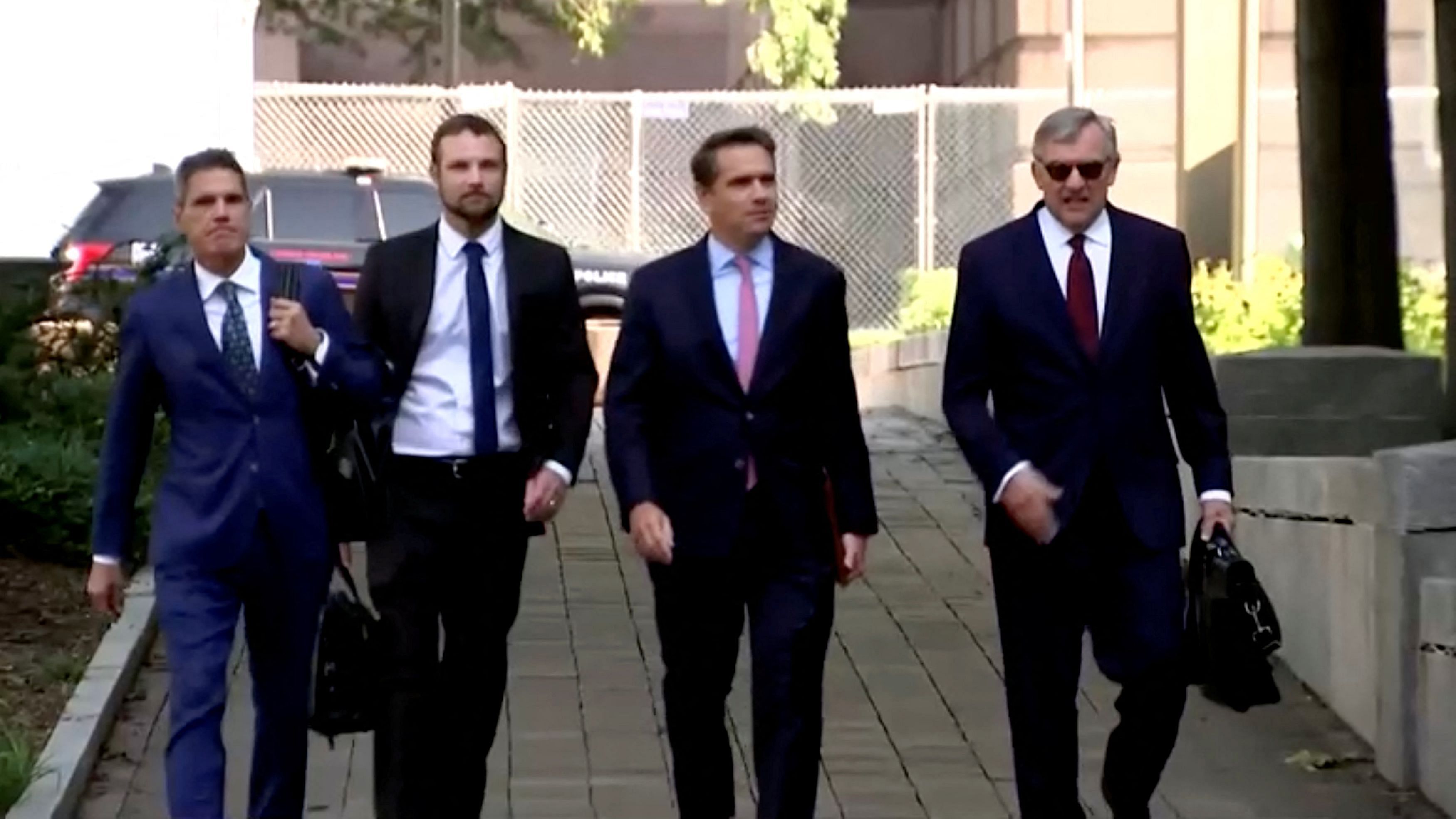
Lawyers for former U.S. President Donald Trump
Credit: Reuters Photo
Donald Trump’s defenses in his federal election interference case are coming into focus: a mix of blame shifting, political attacks and a kind of legal gaslighting.
The indictment by special counsel Jack Smith accuses Trump of “a multipronged endeavor to overturn the 2020 presidential election, disenfranchise voters, and obstruct the transfer of presidential power,” in the words of one of Smith’s assistants.
Defendants typically fight charges by denying responsibility. But Trump and his lawyers, at least so far, aren’t saying that he didn’t do what he’s accused of; they are saying that he did it, but for benign, even admirable reasons.
In essence, they are trying to flip the script of the indictment and reframe all of the steps Trump took to stay in power after losing the election — the things that the government calls crimes — as proper efforts to ensure a free and fair election. Trump is trying to convince the court that the moves he made to cling to power were really “innocuous, perhaps even admirable conduct,” as prosecutors put it.
The attempted inversion works like this.
Prosecutors have accused Trump of hatching various plots to subvert the election. He tried, for instance, to enlist the Justice Department, they say, into validating his claims that the vote count had been rigged. And he pressured state officials, they say, to draft fake slates of electors saying that he won in states where he lost.
While Trump’s lawyers are not quite disputing that all of this took place, their first line of defense is to claim that none of it is criminal. In fact, they’re asserting more: They contend that Trump is immune from the charges altogether because everything he did after losing the race was part of his presidential duties to preserve the “integrity” of the election. They also maintain that as he sought to persuade his aides and allies to help him stay in power, his actions were protected by the First Amendment.
“President Trump acted at all times in good faith,” one of his lawyers, John Lauro, wrote last month, “and on the belief that he was doing what he had been elected to do.”
As a second strategy, Trump will likely raise what is known as an advice of counsel defense. That is, he will seek to avoid responsibility for the crimes he has been charged with by blaming the lawyers around him at the time for giving him bad advice.
If prosecutors try to hold him accountable, for example, for spreading lies that the election had been rigged, Trump could simply argue that his legal team was telling him that there had in fact been fraud. If they seek to go after him for taking part in the so-called fake elector scheme, he could assert that the plan was proposed to him by lawyers who knew better.
This particular defense suffered a potential blow this week when a videotaped interview with Jenna Ellis, one of the lawyers advising Trump, surfaced in the case in Georgia where he stands accused of tampering with that state’s election. In the interview, Ellis told prosecutors that one of Trump’s top aides took a hard line when she informed him that his legal challenges to the election hadn’t worked.
“The boss is not going to leave under any circumstances,” Ellis quoted the aide, Dan Scavino, as saying. “We are just going to stay in power.”
Trump’s third defense strategy is aimed less at the judge and eventual jury than at his own supporters and other voters who might be open to his arguments.
Over and over, he has tried to paint the election interference indictment as an example of President Joe Biden personally “weaponizing” the government against him, although the case is being led by Smith, an independent prosecutor. This narrative seeks to flip the script on the attempts to hold him accountable for his behavior, turning every prosecution into a supposed act of persecution.
All of this has been taking place against the backdrop of Trump’s using language that his critics say has increasingly echoed the words of prominent fascists.
“We pledge to you that we will root out the communists, Marxists, fascists and the radical left thugs that live like vermin within the confines of our country, that lie and steal and cheat on elections,” he said in New Hampshire on Saturday, adding that the greatest threat to America “is from within.”
Historians immediately noted that “vermin” was a dehumanizing term used by Adolf Hitler to justify the Holocaust of millions of Jews as eliminating an “inferior race.”
Trump’s spokesperson, Steven Cheung, rejected as “ridiculous” the comparison of Trump to fascists. He went on to say that those drawing the parallels are “snowflakes” driven by hatred of Trump, adding, apparently without irony, that “their sad, miserable existence will be crushed when President Trump returns to the White House.”